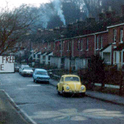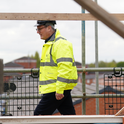The "beast from the east" has left temperatures across the UK plummeting this week. Commuters are even being advised to leave work early to avoid transport delays getting home. Sadly, over 8000 people in London alone last year had no home to get to and now face sub-zero temperatures outdoors.
Rough sleeping is a tragedy all year round. But during the weather we are set to face this week, the situation becomes truly desperate. Whilst the death of a homeless man briefly captured attention two weeks ago as his life ended on parliament’s doorstep, many charities were quick to highlight that it was far from an isolated incident. Another man had died just along the river near Embankment a week before. Last week a rough sleeper died in -5 degree temperatures in Edinburgh and another rough sleeper was found dead in Essex, and in December a 38-year-old man froze to death in Birmingham.
Early deaths are routine for rough sleepers; Crisis estimates that the average life expectancy for men is 47 years old and just 43 for homeless women, about half the national average.
Councils and the London Mayor have once again initiated Severe Weather Emergency Protocols (SWEP) this week, which will see emergency shelters being set up in community centres, public buildings as well as in many churches and mosques. Sadiq Khan opened fundraising for the emergency shelters in December and Londoners donated over a £100,000 in just a few weeks.
In the absence of a coherent national strategy, it is the ad hoc work of Mayors, councils, charities and volunteers preventing more people freezing to death on our streets. It is not only an issue in the capital, but across the country. Birmingham has a huge homeless population and Brighton is the homeless capital of the south coast.
This is shaming. Despite the public will to do more, the national government has overseen year on year growth in homelessness since 2010.
Whitehall is the root of most homelessness. It has failed to dent, let alone tackle, the housing crisis. Four in ten rough sleepers have mental health conditions but have been utterly failed by cuts to their most crucial services; the devastation of council budgets; the withdrawal of proven interventions around drug and alcohol addiction; and the ideological salami slicing of our safety net welfare system have all contributed to the rise in homelessness witnessed since the Coalition took office.
The number of homeless Britons is now tenfold what it was in 2005—with over 300,000 now forming the less visible bulk of homelessness, surviving in temporary accommodation, hostels and B&Bs. Shelter estimates that around 120,000 children woke up in these conditions on Christmas Day last year.
These people face the bleakest of circumstances. As David Cameron, Nick Clegg and Theresa May have undermined support and rolled back the state in this area, homeless people have become reliant on the goodwill of charities and individuals but it is an unacceptable and unsustainable balance. With lives at stake in this extreme weather, only the government can reverse this trend and end the growth in homelessness and rough sleeping.
Homeless people are freezing to death—when will this government take some responsibility?
As temperatures plummet, the situation for Britain’s rough sleepers has become truly desperate
February 28, 2018

Photo: Yui Mok/PA Wire/PA Images











